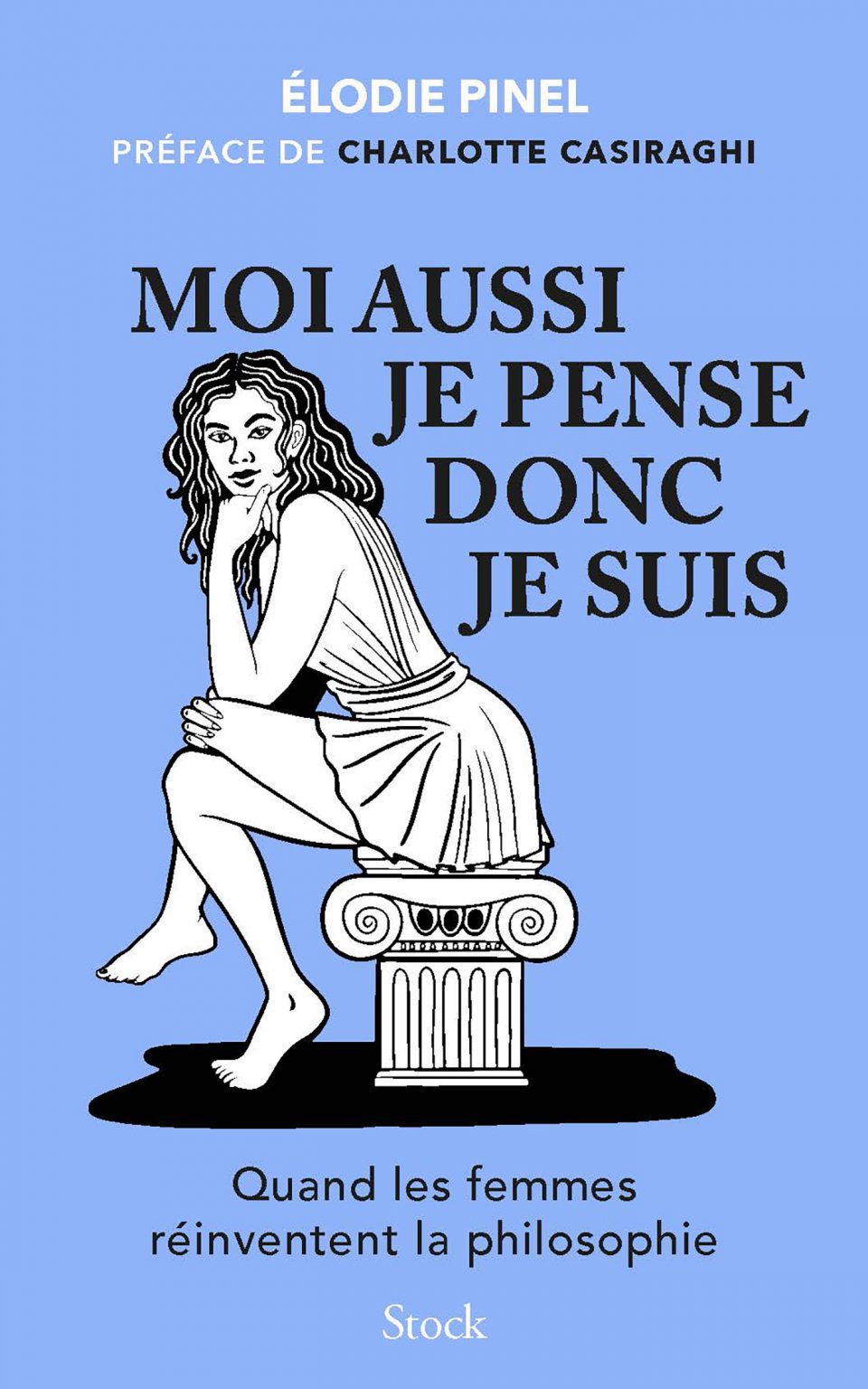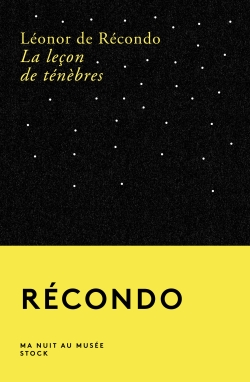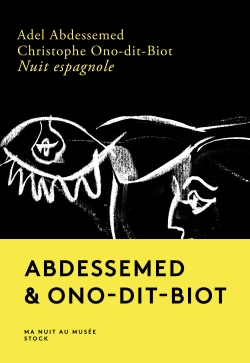Narrative Non-Fiction
- RUE DU PREMIER-FILM, Thierry Frémaux
- AS NIGHT TURNS TO NIGHT, Ananda Devi
- THE MUSEUM OF YOUTH, Aurélien Bellanger
- BLUE BACON, Yannick Haenel
- A ROOM AT THE MEKONG HOTEL, Jean-Luc Coatalem
- SHIFTING THE MOON FROM ITS ORBIT, Andrea Marcolongo
- KING KASAI, Christophe Boltanski
- WHEN YOU LISTEN TO THIS SONG, Lola Lafon
- THE NATIONAL MUSEUM, Diane Mazloum
- THE TITANIC ARK, Éric Chevillard
- THE SKY INSIDE US, Jakuta Alikavazovic
- MUSES NEVER SLEEP, Zoé Valdés
- THE SMELL OF FLOWERS IN THE NIGHT, Leïla Slimani
- EPHEMERAL, Bernard Chambaz
- BEHIND CLOSED DOORS WITH PICASSO, Enki Bilal
- THERE IS ONLY ONE LOVE, Santiago H. Amigorena
- A LESSON FROM THE SHADOWS, Léonor de Récondo
- SPANISH NIGHT, Adel Abdessemed & Christophe Ono-dit-Biot
- WALK ON TILL THE EVENING, Lydie Salvayre
- THE PAINTER DEVOURING THE FEMALE NUDE, Kamel Daoud
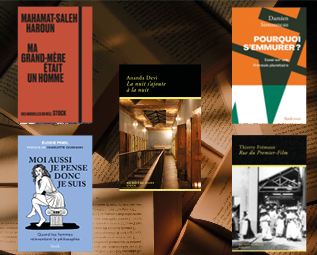
Contact us
Head of Rights
For German, Dutch, Greek, Middle Eastern, North African, Scandinavian, Turkish, UK and US inquiries
Foreign Rights Manager
For Asian, Brazilian, Eastern Europe, Italian, Portuguese, Russian, South American and Spanish inquiries
Dear friends,
We are delighted to unveil our 2024 Fall Non-Fiction Rights List.
We will be attending the Frankfurt Book Fair in October. Do send us an e-mail should you wish to book an appointment!
You can also drop by our stand: E42 in Hall 5.
Don’t forget to take a look at our 2024 Fall Fiction Rights List.
We very much looking forward to hearing from you!
The Rights Team
New Titles
My Grandmother Was A Man
Mahamat-Saleh Haroun
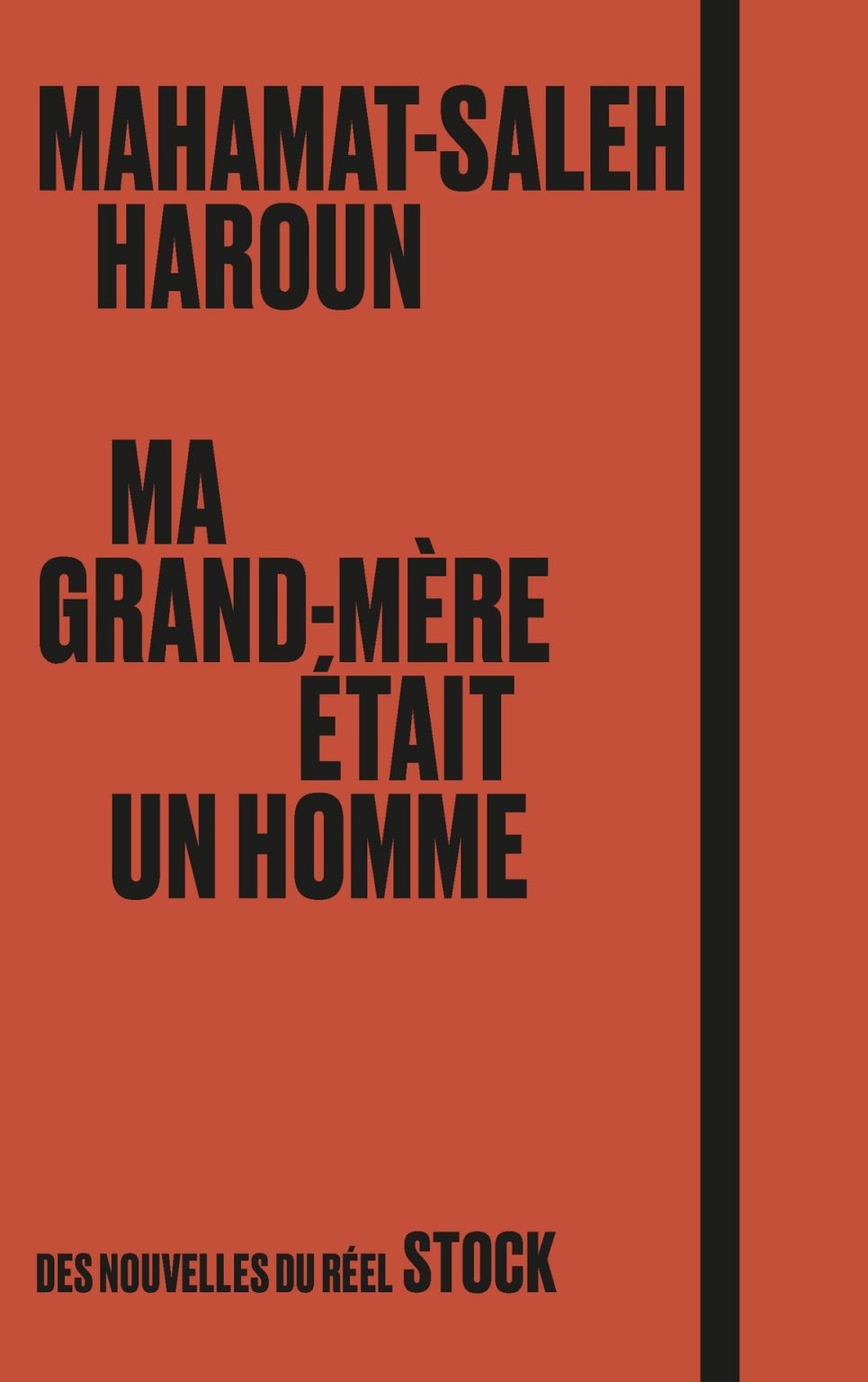
Narrative Non-Fiction - September 2024 - 248 pages
The extraordinary destiny of Chad’s first feminist.
Born in a village under French colonial rule, Kaltouma’s life was turned upside down when her husband was enlisted by French forces in the fight against Nazism. When he returned from the war alive in 1945 and announced his desire to take a second wife, aged 13, Kaltouma fled on horseback into the desert. She left behind her only son, who would spend his youth writing her letters and never sending them.
When he died, he passed the story on to his son, Mahamat-Saleh Haroun, who here unearths the unique destiny of his grandmother.
This is a powerful and personal story, epic yet intimate, that combines adventure and rite of passage and takes us on a journey to discover Chad, a land of sun and blood, whose history is closely intertwined with that of France but about which we know very little.

The author
Filmmaker and writer, Mahamat-Saleh Haroun was born in 1961 in Abéché, Chad, where he was Minister of Culture from 2017 to 2018. His films Bye Bye Africa and Daratt won awards at the Venice Film Festival, and Un homme qui crie won the Jury Prize at the Cannes Film Festival. He has published Djibril ou les ombres portées and Les Culs-Reptiles (Prix Jean-Cormier 2023), both with Gallimard.
Download the material
Find out more
Click hereWhy Do We Wall Ourselves In?
Damien Simonneau
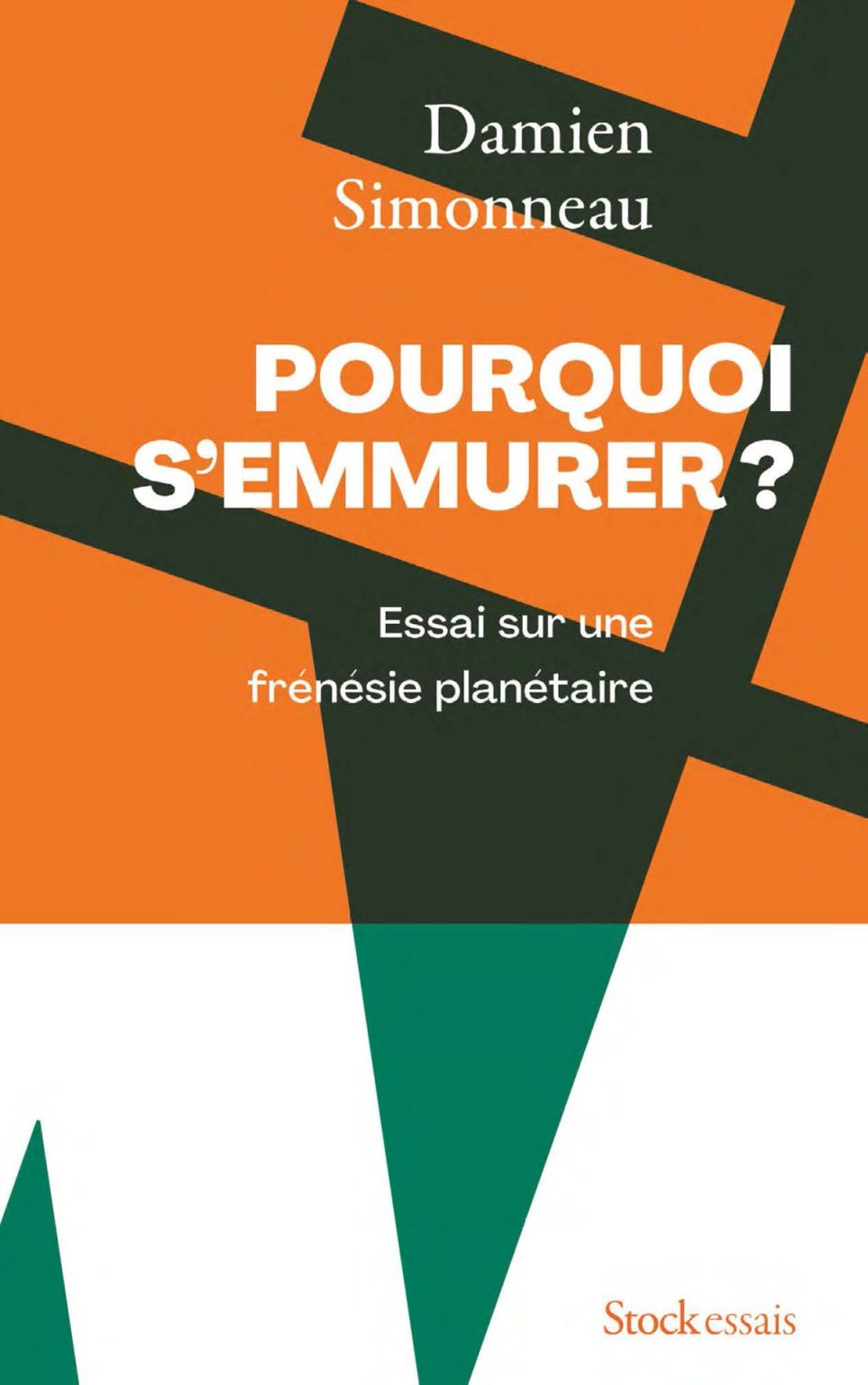
Politics/Current Affairs - September 2024 - 232 pages
In order to demolish walls on our borders, Damien Simonneau first deconstructs those in our mind.
The idea of a “world without borders”, inherited from the end of the Cold War, seems today more than outdated. Whether they are making use of physical barriers or technological devices, whether their aim is to repel the intrusion of enemies who are difficult to grasp hold of or to combat the flow of people or goods, the picture is undeniable: all over the world, states are making the choice to wall themselves in. In Europe as in Africa, in America as in Asia, the number of walls is growing. While only a dozen existed at the conclusion of the Cold War, we can now count 74 border walls.
But the wall is not just a physical reality, it is also mental. Asking ourselves why we wall ourselves in seems to hold the key to understanding this global frenzy. In this well-conducted and well-researched essay, Damien Simonneau drills down into the idea that our borders are “sieves” to be plugged. The author reminds us that walls reflect above all a political choice as well as revealing a certain view about the identity of a society, about the action of the state and about our relationship with territory, migration, difference and the world.

© Noëlle Ballestro
The author
Damien Simonneau is a lecturer in political sciences at the Institut National des Langues et des Civilisations Orientales (INALCO) and a researcher at the Institut Convergences Migrations du Collège de France. His research concerns the politics of border security in Israel and Palestine, on the United States-Mexico border and on European borders.
Download the material
Find out more
Click hereRecent Highlights
Blindsided
Sylvie Kauffmann
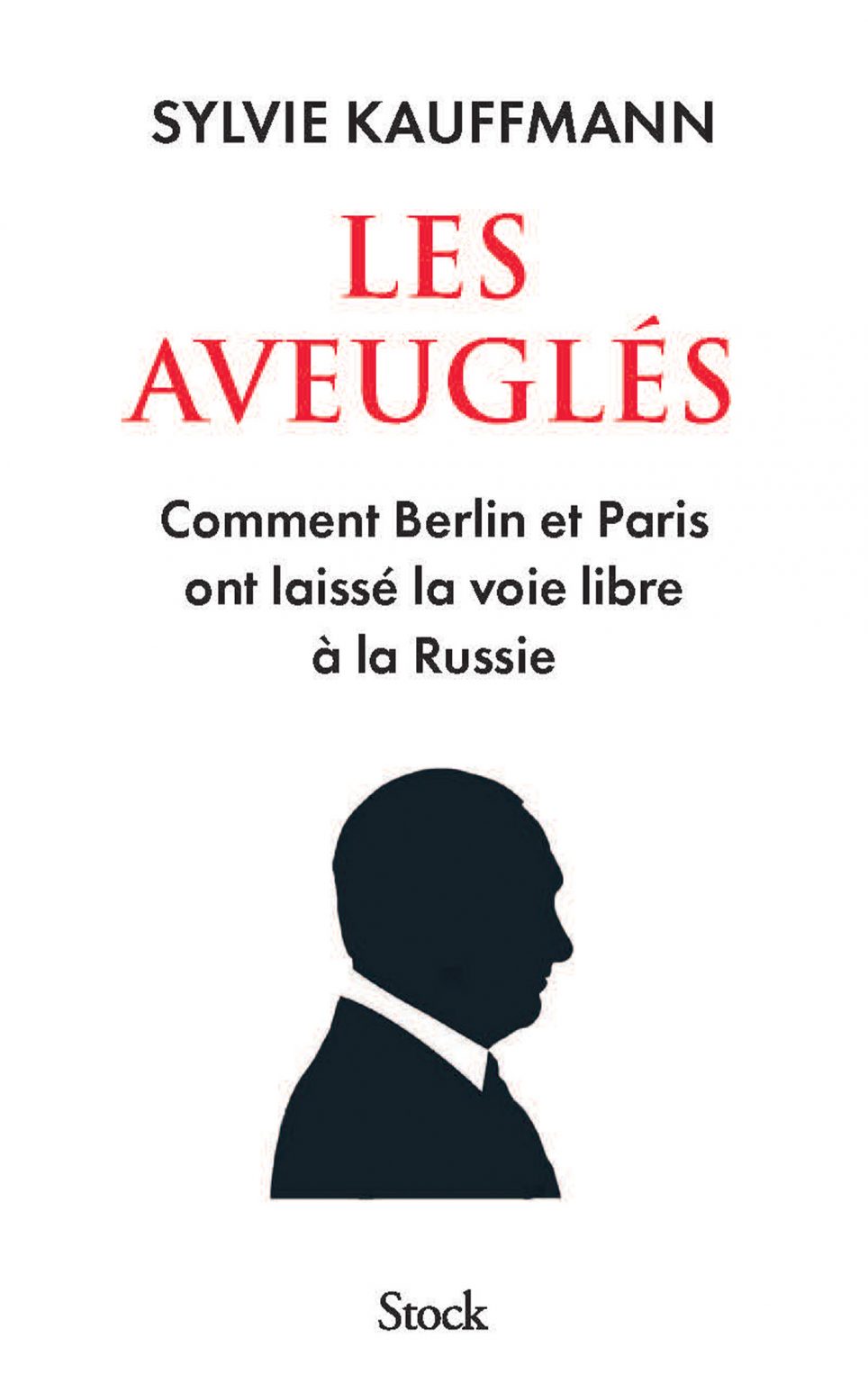
Politics/Current Affairs - October 2023 - 468 pages
Rights sold to Estonia (Kava Kirjastus) and Poland (Kultura Liberalna).
Did Europe pave the way for Putin?
On 24th February 2022 the world fell apart: Putin invaded Ukraine and pulverised stability in Europe.
Three decades earlier, everyone was convinced that the end of the Cold War heralded a new era typified by the triumph of liberal democracy. But over the years, Vladimir Putin’s Russia in the East was growing increasingly aggressive; young democracies in central Europe fell into the trap of populism; while in the West, Donald Trump abused American democracy and threatened international order.
Why did we get it so badly wrong? What warning signs did we ignore?
Using the testimony of key players from pivotal episodes over the last twenty years, this book highlights why we failed to notice the realities of Putin’s Russia: withdrawal by America; blindness in a Germany trapped by its own history; a contempt for new democracies in eastern Europe; and the obsolete russophilia among some of the French elite, including – importantly – Sarkozy and Macron, who were incentivised by unrealistic visions of a robust security structure between Europe and Moscow.
Exactly when should we have taken a different route? Was there even one to take? Will Europe emerge weakened or strengthened by this war that has opened the continent’s eyes?

The author
Sylvie Kauffmann is a journalist at Le Monde, where she writes a weekly geopolitical column. She has been an international correspondent in Moscow, central Europe, the United States and Asia. She has also been a contributor to the New York Times and regularly writes in the Opinion pages of the Financial Times.
Download the material
Find out more
Click hereI Think, Therefore I Am Woman
Élodie Pinel
Non-Fiction/Feminism - February 2024 - 336 pages
Excluded from the canon, discover how female philosophers nevertheless developed rich and original ideas!
Simone de Beauvoir, Hannah Arendt, Simone Weil… and the list of widely known female philosophers ends there. No doubt because the majority of them didn’t have the good fortune to be accorded the noble status of “philosopher”. Instead, they were referred to as “women of letters” or at best “thinkers” and “intellectuals”. And for the lucky few who have graced the philosophy hall of fame, they are all too often only known for a fraction of their ideas or reduced to their feminist thought.
This work invites the reader to change their perspective and retrace the history of thought through the eyes of female philosophers, who were either excluded from institutions or prevented from their work by men. It is high time that we took them seriously, fully embraced their bodies of work and campaigned for their inclusion in school curriculums so that their ideas can finally permeate society.

The author
Élodie Pinel holds the prestigious “agrégation” teaching qualification in literature and philosophy and is also a doctor of French literature. She is a specialist in female authors and previously published Pour en finir avec la
passion (Amsterdam, 2023).
Download the material
Find out more
Click hereNARRATIVE NON-FICTION
"My Night in a Museum"
Rue Du Premier-Film
Thierry Frémaux
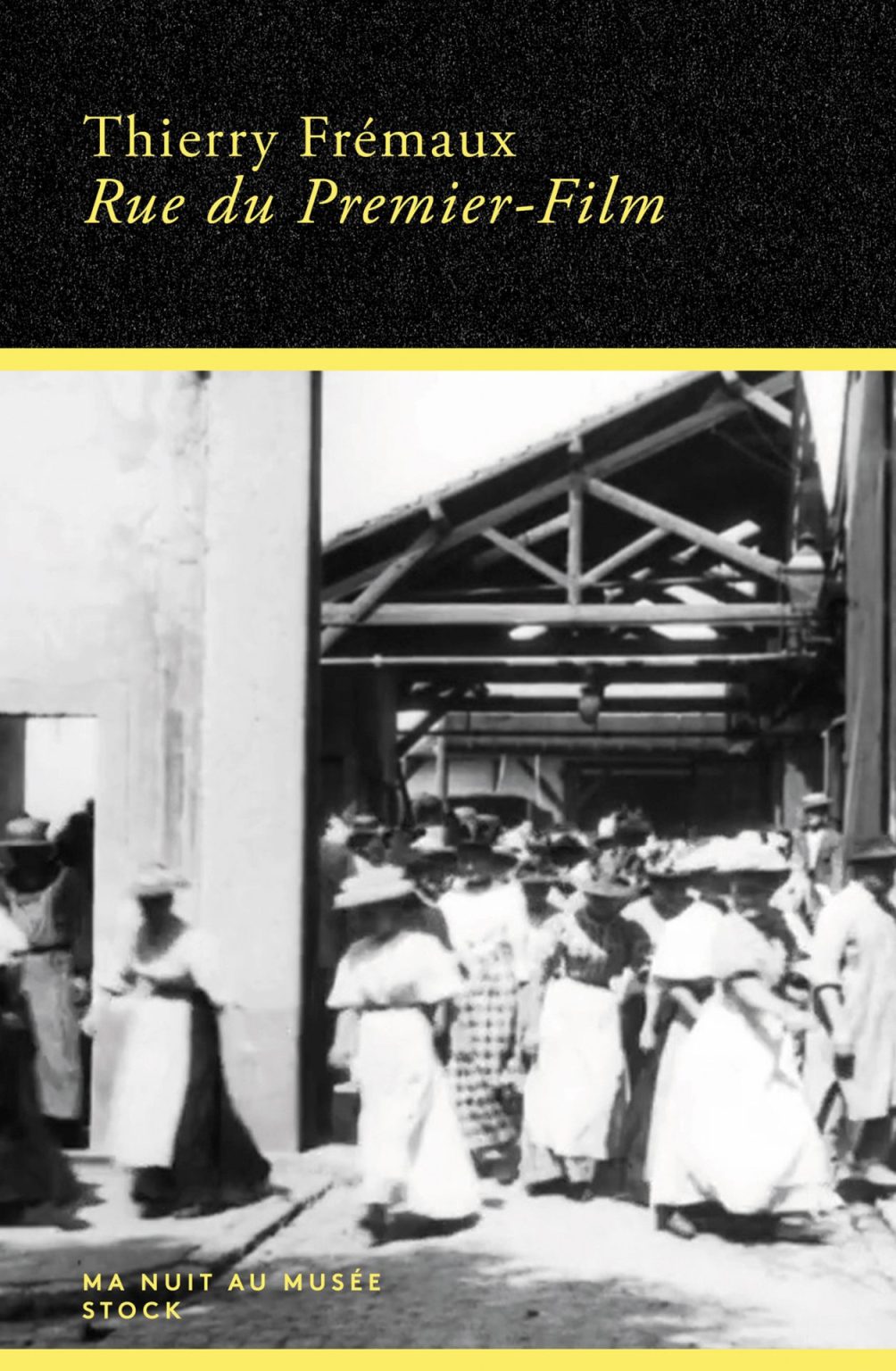
Narrative Non-Fiction/Art - September 2024 - 252 pages
Villa Lumière, Lyon
Option in Brazil (Editura Fosforo) and Japan (Kanzen).
Thierry Frémaux, a leader of global cinema, spends a night in the birthplace of the seventh art.
Since that day in June 1982 when Thierry Frémaux first discovered the Villa Lumière in the Monplaisir district of Lyon, he has practically never left. Spending a night in the exact place where Auguste and Louis Lumière launched the modern cinematograph, where the first film in history was shot, where Bernard Chardère inaugurated the Institut Lumière, where Bertrand Tavernier then cemented its international status… the choice was obvious. It was a way for Thierry Frémaux to come full circle and express both his gratitude and his passion for this special art form that shows and imagines the world at the same time.
The history of the origins of cinema goes hand in hand with the history of the Institut Lumière, a place visited as a rite of passage by several hundred personalities from French and world cinema. Frémaux pays tribute to his predecessors, those who are still a source of inspiration, as well as the innovators of today.
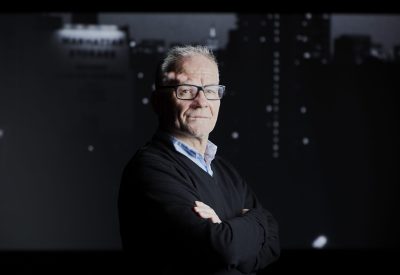
The author
Thierry Frémaux is the director or the Institut Lumière and the Cannes Film Festival. He is the author of Sélection officielle (Grasset, 2017), Si nous avions su que nous l’aimions tant, nous l’aurions aimé davantage (Grasset, 2022), and Judoka, published by Stock in 2021.
Download the material
Find out more
Click hereAs Night Turns To Night
Ananda Devi
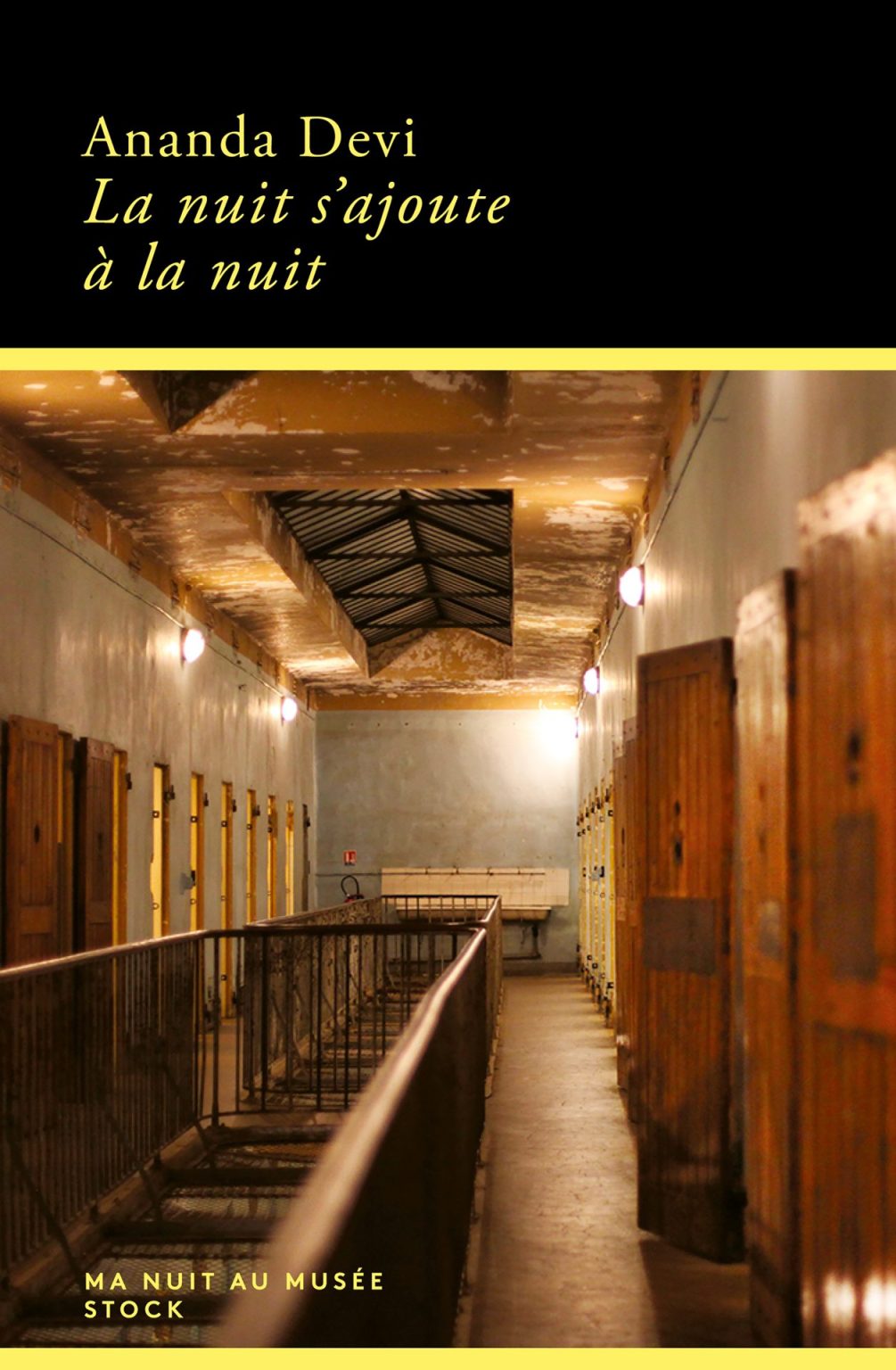
Shortlisted for the Prix Renaudot Essay
Narrative Non-Fiction/Art - August 2024 - 304 pages
Montluc Prison, Lyon
Option in Brazil (IMA Editorial) and USA (FSG).
Ananda Devi reflects on the perils of inhumanity, violence, ignorance, and above all complicity. A history that continues to repeat itself.
The author spends a night in the the Montluc Prison Memorial and finds herself consumed by the heavy history of this Lyon Prison. It was requisitioned during the Second World War to detain members of the Resistance, Jews, and spies. After the Armistice, French and German collaborators and war criminals were in turn imprisoned there. During the Algerian War, many condemned Algerians awaiting their sentence were held within its walls. Klaus Barbie, head of the Gestapo in the region and known as the “Butcher of Lyon”, was symbolically incarcerated there before his trial in 1983.
All the complexity of history seems to converge at a single point, but its tentacles spread much further. The author tries to follow them, to untangle them, to grasp at them. To become part of this history during one sleepless night and meet the spirits of so many Resistance fighters, only to realise that the only ghost haunting this place is her.

The author
Born in Mauritius, Ananda Devi boasts a body of work that has won numerous prizes and been translated into a dozen languages. Her most notable publications include Eve de ses décombres (2006, Prix des Cinq Continents, Prix RFO), Le Sari vert (2009, Prix Louis Guilloux), and Le Rire des déesses (2021, Prix Femina des Lycéens). She is also the 2024 recipient of the prestigious Neustadt Prize.
Download the material
Find out more
Click hereThe Museum of Youth
Aurélien Bellanger
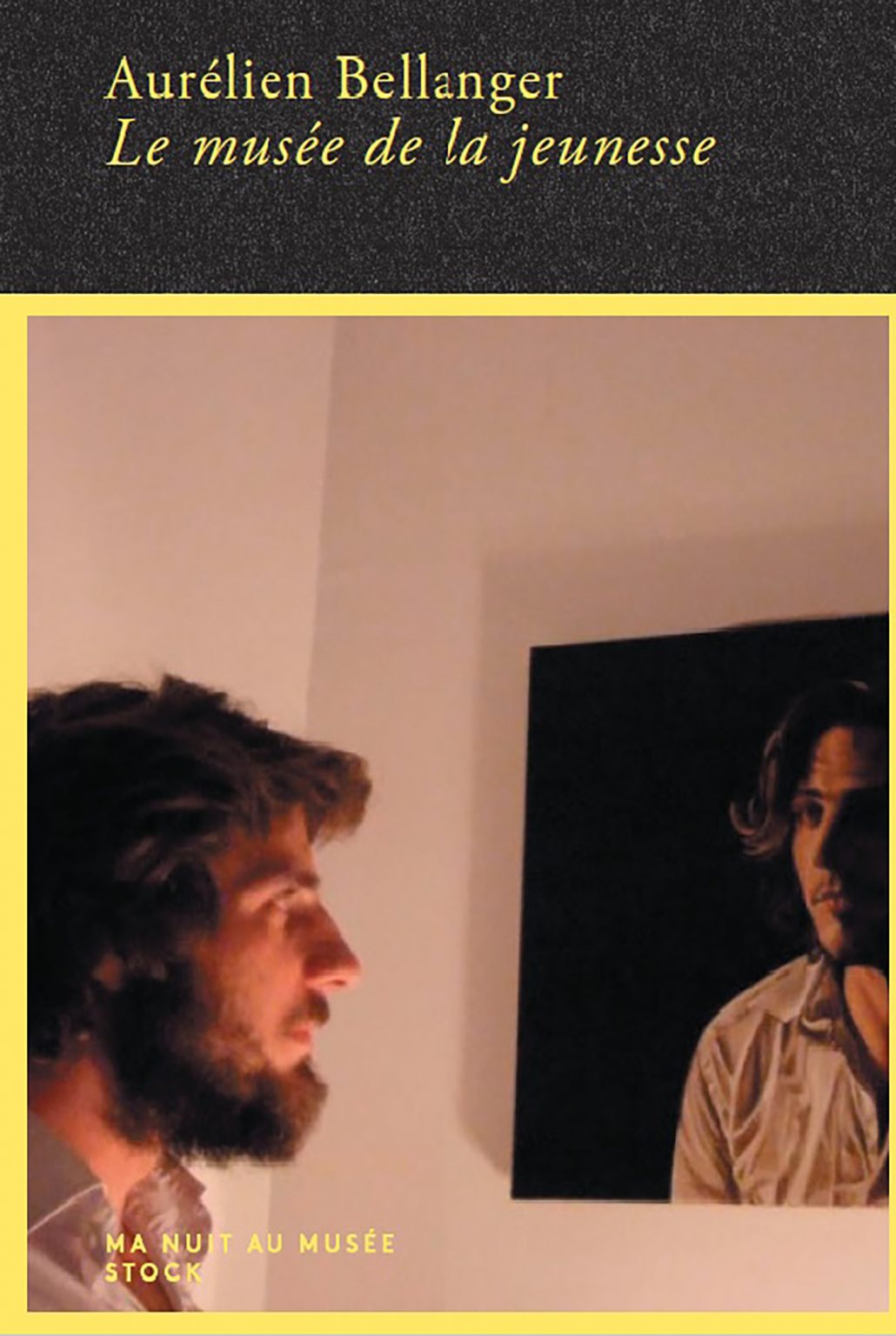
Narrative Non-Fiction/Art - March 2024 - 160 pages
Louvre Museum, Paris
Aurélien Bellanger and the masterpiece of his youth meets Nicolas Poussin, the painter of eternal maturity.
Of all the museums in the world, why did Aurélien Bellanger choose to sleep at the Louvre among Poussin’s works, only two kilometres from his home? For him, it was a way of revisiting his younger years and reflecting on the absence of those of Poussin, who appears to have always been a classic.
When he spent the night in the Louvre, the author was in the process of rediscovering his own hidden masterpiece: a series of videos taken during his youth in Paris. He was halfway through watching this embarrassing and clumsy film when he found himself alone before Poussin’s paintings. It helped him to understand more than ever why Poussin would have hidden his early works, because there is always something shameful about youth. Especially when you want to be seen as a young artist like the author—gaining life experience, enduring failures, discovering his personality, and re-enacting the eternal comedy of moving to Paris and starting out in life.
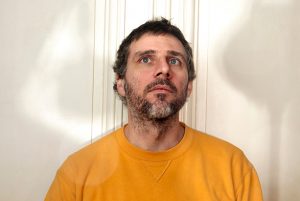
The author
Aurélien Bellanger was born in 1980 in Laval. He has published six novels including La Théorie de l’information (2012), and more recently Le Vingtième siècle (2023), shortlisted for the Prix Goncourt and the Prix Renaudot.
Download the material
Find out more
Click hereBlue Bacon
Yannick Haenel
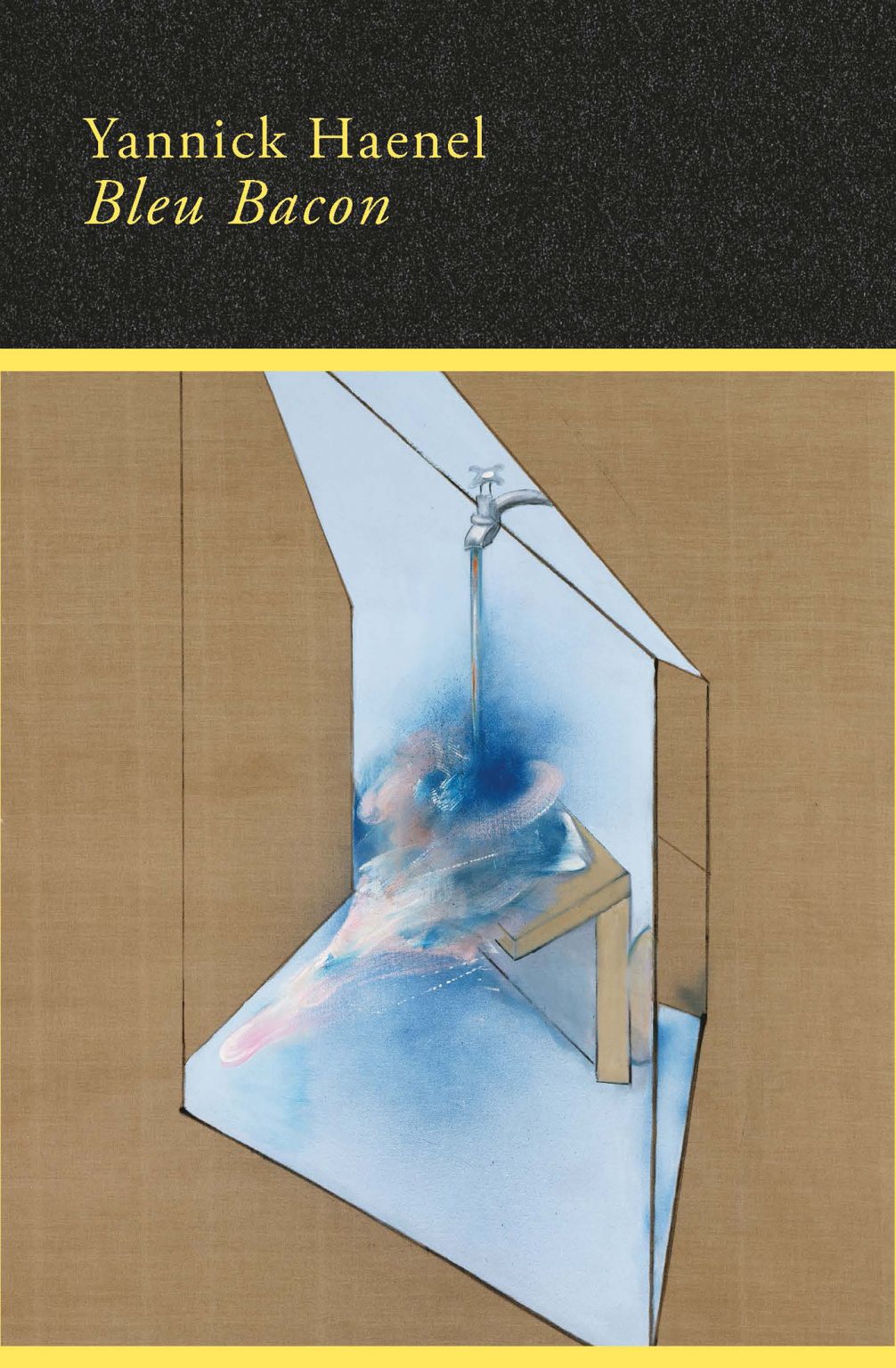
Narrative Non-Fiction/Art - January 2024 - 240 pages
Centre Pompidou, Paris
Rights sold to Korea (Mujintree).
Option in Brazil (Record), Bulgaria (Paradox), China (Zhejiang University Press), Czech Republic (Jota), Finland (Like), Germany (Rowohlt), Italy (Neri Pozza), Japan (Kawade Shobo Shinsha), the Netherlands (Meulenhoff), Poland (Wydawnictwo Literackie), Portugal (Teorema), Serbia (Zavet), Spain (Castilian: Acantilado & Catalan: Empuries), Sweden (Arche), Syria (Mamdouh Adwan) and the USA (Other Press).
An odyssey of intense sensations in which the author brings to light the tumult, sensuality, and depth of Francis Bacon’s work.
Struck with a migraine upon his arrival at the Francis Bacon exhibition at the Centre Pompidou, Yannick Haenel finds himself spending part of his night confined to a camp bed.
Taking a turn for the better, the author begins to wander through the exhibition gripped by intense highs and lows that he recounts like a voyage of discovery, revealing a lesser-known aspect of Bacon’s paintings—his sensual use of colour, and the sexual freshness of his blues.
At the request of the author, all the lights are turned off at three in the morning. The experience culminates in a light show to the soundtrack of David Bowie’s last song, the author losing himself in the museum with a torch in hand, dancing ecstatically as the paintings seem to jump off the walls.

The author
Yannick Haenel was born in 1967. He has published ten novels, including Cercle (2007, Prix Décembre), Jan Karski (2009, Prix du roman Fnac, Prix Interallié) and Tiens ferme ta couronne (2017, Prix Médicis). He is also a columnist for Charlie Hebdo.
Download the material
Find out more
Click hereA Room at the Mekong Hotel
Jean-Luc Coatalem
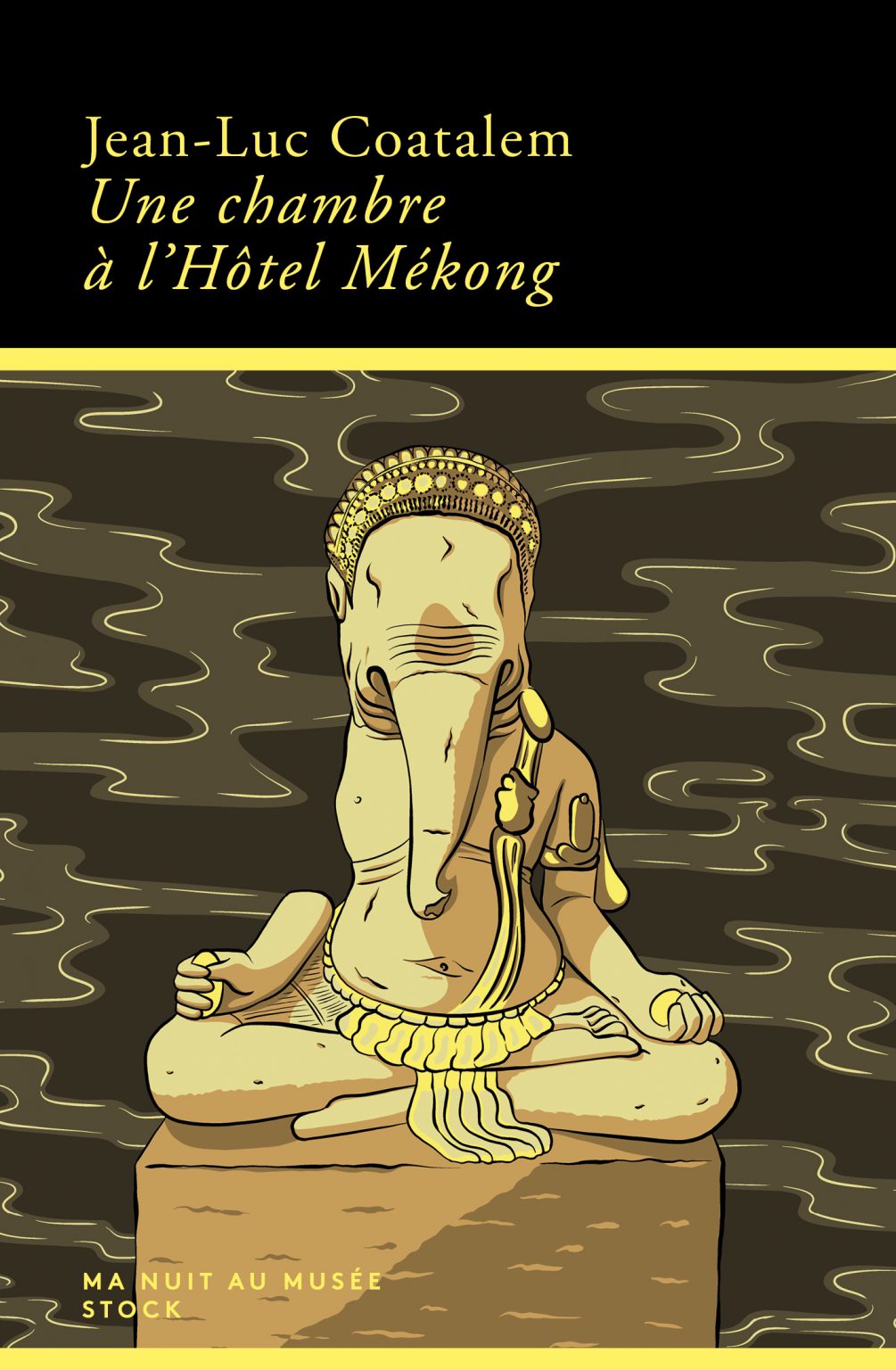
Narrative Non-Fiction/Art - October 2023 - 208 pages
Guimet Museum, Paris
Deep in the Guimet Museum, the author reels between different Asian enticements, confiding us a powerful sensory odyssey.
Why the Guimet Museum, devoted to Asian arts? It was to this exotic museum with its fertile stories and secrets from distant lands that Jean-Luc Coatalem’s grandfather came at weekends in the hopes of diluting his melancholia.
The museum will always be a special place for the author too. Cocooned by treasures from the likes of China, Indochina, southern India, Tibet, Japan and Afghanistan, he’s reminded of his childhood in Singapore. When the sandstone Buddhas, winged dragons and armies of Samurais are shrouded in darkness, they seem to come to life, frightening this lone visitor.
Over the course of this account, the line between the real and the imaginary blurs and Jean-Luc Coatalem starts to lose his bearings. But he decides to play on this disorientation and is eventually reconciled with his childhood.

The author
Jean-Luc Coatalem is a writer and journalist whose most acclaimed books published by Stock are Mes pas vont ailleurs, about Victor Segalen and winner of the Prix Femina for an essay and the Prix de la Langue française; and La part du fils, shortlisted for the Prix Goncourt and the Prix Renaudot.
Download the material
Find out more
Click hereShifting the Moon from Its Orbit
Andrea Marcolongo
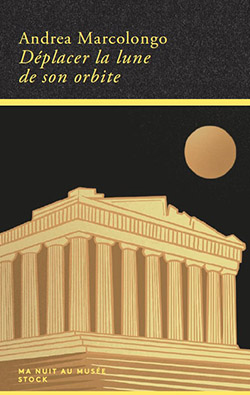
Narrative Non-Fiction/Art - April 2023 - 240 pages
Acropolis Museum, Athens
Rights sold to Greece (Patakis), Italy (Einaudi), Spain (Taurus/Penguin Random House), UK & US (Europa Editions).
An intimate yet universal text about our relationship with language and the question of identity.
Andrea Marcolongo spent a a night with a waning moon completely alone on the cold floor of the Acropolis Museum in Athens. But can you really be alone when you’re watched by thousands of eyes carved in marble?
Come nightfall, it wasn’t so much the presence of these unfamiliar eyes that unsettled the author, but rather the absences. All that’s left in this museum, or any museum in Athens, are offcuts: One of Zeus’s hands, a horse’s head, a section of pediment from a temple. The West was built on fragments of marble torn from Greece with pickaxes and sent to England by Lord Elgin in the 19th Century.
In this museum that howls in silence about this collective theft the author considered what shapes our identity and spent her night haunted by a feeling of being just another impostor: “I’m not Greek, I don’t speak modern Greek, but I still built my life and my writing on this theft.”

The author
Andrea Marcolongo was born in Crema in 1987. A Hellenist with a classics degree from Milan’s Università degli Studi, she is the author of La lingua geniale (2018), La misura eroica (2019), Alla fonte delle parole (2020) and La lezione di Enea (2021). Her books have been published in translation in 28 countries. She now lives in Paris.
Download the material
Find out more
Click hereKing Kasaï
Christophe Boltanski
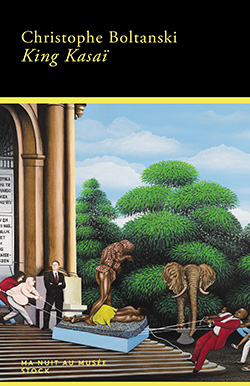
Narrative Non-Fiction/History - January 2023 - 160 pages
Africa Museum, Brussels
Rights sold to Italy (Add Editore) and the Netherlands (Cossee).
Christophe Boltanski feels his way through the underbelly of European colonial history.
When it was opened in 1897, the Royal Museum of Central Africa near Brussels showcased Belgian colonialism in Congo. On an initiative of Léopold II, stuffed animals, geological samples, food products, and objects of ethnographic and artistic interest from Congo were unveiled. A whole African village was even recreated in the grounds, costing the lives of its seven inhabitants.
Reopened four years ago as the Africa Museum, the establishment is still struggling to come to terms with its dark past. The author Christophe Boltanski decides to spend a night in this place full of ghosts in order to learn to live with them. Entering like an explorer in an ecosystem full of ferocious wild animals, he also finds statues and other clichés of the European colonial era, including the stuffed body of King Kasaï. This elephant was hunted and shot to order for the museum and was a propaganda tool for Léopold II’s colonial project for many years.
Setting off in the footsteps of the hunter who took part in this zoological expedition and killed the elephant in 1956, the author ventures into the heart of the most violent darkness – our memories.

The author
The writer and journalist Christophe Boltanski is the author of Minerais de sang (Grasset, 2012), La Cache (Stock, 2015), which won the 2015 prix Femina and sold 120,000 copies, Le Guetteur (Stock, 2018), and Les Vies de Jacob (Stock, 2021).
Download the material
Find out more
Click hereWhen You Listen to This Song
Lola Lafon
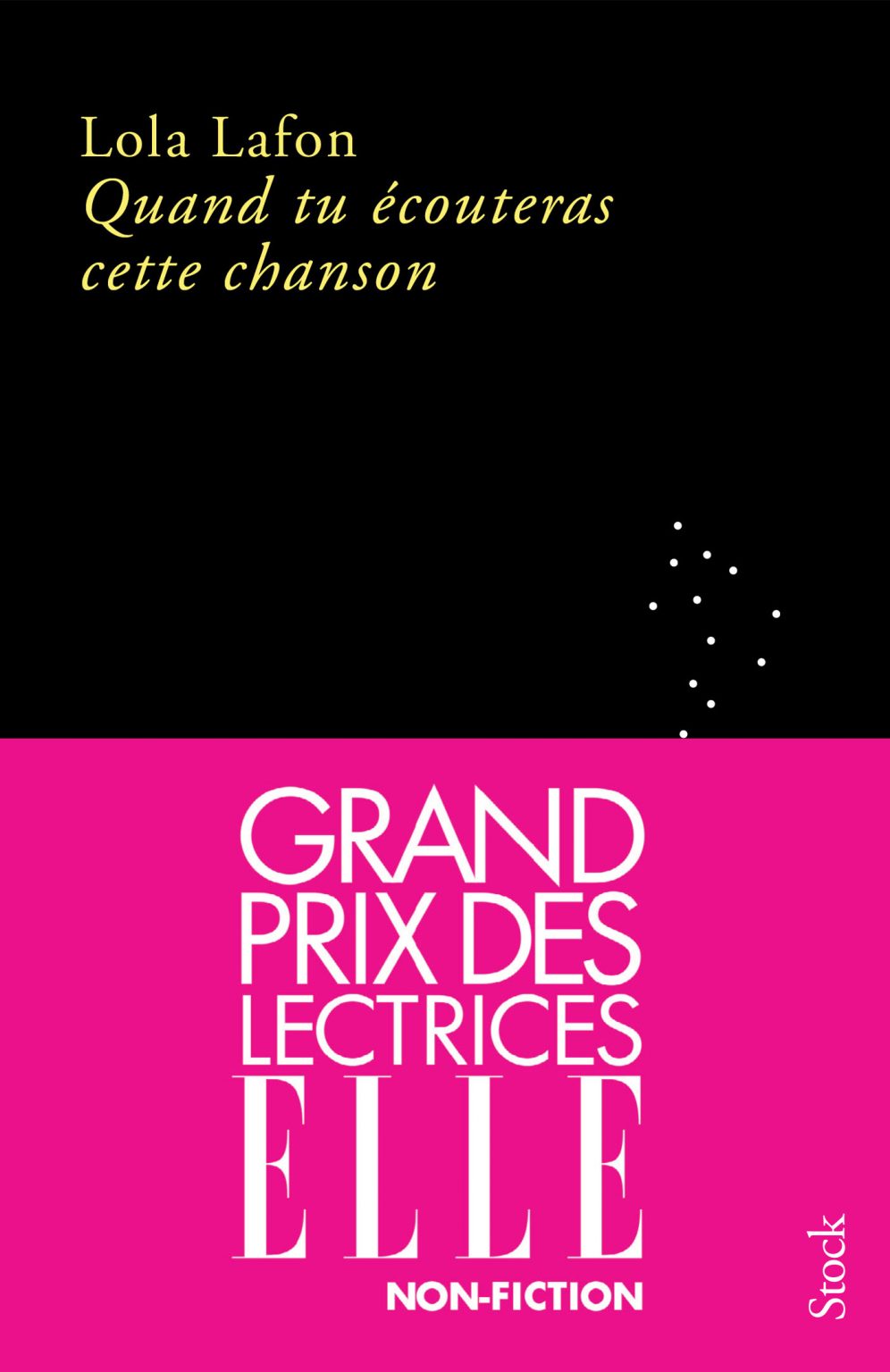
OVER 80,000 COPIES SOLD!
Prix Décembre 2022
Prix Les Inrockuptibles 2022
Grand Prix des Lectrices de ELLE Non-Fiction 2023
Narrative Non-Fiction/Art - August 2022 - 256 pages
Anne Frank Museum, Amsterdam
Rights sold to Brazil (Paris de Historias), Germany (Aufbau), Italy
(Einaudi, preempt), the Netherlands (De Arbeiderspers, auctions), Slovakia (Inaque), Spain (Castilian: AdN, WSL, auctions & Catalan: Mes Llibres) and USA (Yale UP, WEL).
Lola Lafon spends a night in Anne Frank’s house in Amsterdam, an empty museum haunted by absence.
“Anne Frank is so much a story ‘everyone knows’ that no one actually knows that much about it. Because ‘everyone knows’ doesn’t mean ‘everyone understands’, but that we’re in a hurry to move on, and tidy this little ghost away in a museum.
The Anne Frank House is an empty apartment. What visitors file past is the absence of its inhabitants. And it’s this emptiness that transforms the apartment, the annexe, into a museum. But that emptiness doesn’t exist. It is peopled with reflections that bear witness to the chasm left by Anne Frank’s death.
I will go from one room to another all through the night as if an emergency is still hiding there, waiting to be found.”

The author
Lola Lafon grew up in Eastern Europe between Sofia et Bucharest. She studied Dance and Music in Paris and New York. Her literary output of six novels to date is distinctive for its thorough exploration of narrative forms. La petite communiste qui ne souriait jamais (Actes Sud, 2014) was translated into 11 languages and awarded many prizes including the Madame Figaro Heroine Prize, the prix de la Closerie de Lilas and the prix Étonnants Voyageurs. Chavirer (Actes Sud, 2020) was translated into 16 languages and awarded the prix Landerneau, the prix France Culture Télérama and the Swiss Choix Goncourt.
Download the material
Find out more
Click hereThe National Museum
Diane Mazloum
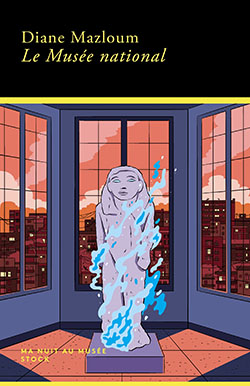
Narrative Non Fiction/Art - March 2022 - 176 pages
National Museum of Beirut, Beirut
Rights sold to Lebanon (Librairie Antoine, French language).
Diane Mazloum spends a night in the National Museum of Beirut, the only national commemorative building in this fragile, divided nation.
The National Museum of Beirut stands on what was the murderous frontier between East and West Beirut during the civil war that lasted 15 years – if it can even be said to have ended.
How did this temple which harbours the treasures of vanished civilisations – from the Egyptians to the Babylonians and the Byzantines to the Mamluks – survive mankind’s brutal assaults?
During her close brush with this sediment of historical material, this confetti of bygone empires, Diane Mazloum comes to understand that the past shapes the present, and the shadows of the dead are cast over the living and inform who they are.

The author
Diane Mazloum was born in Paris and grew up in Rome. She is Lebanese and is the author of several books, including Beyrouth, la nuit (2014, Stock), L’Âge d’or (2018, JC Lattès) and Une piscine dans le désert (2020, JC Lattès), all of which were shortlisted for literary prizes.
Download the material
Find out more
Click hereThe Titanic Ark
Éric Chevillard
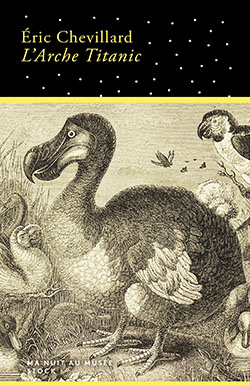
Narrative Non Fiction/Art - January 2022 - 176 pages
Natural History Museum, Paris
Éric Chevillard spends a night in the hall for extinct and threatened species at the Paris Natural History Museum.
The place is frightening, exotic and very inspiring for writing. Between his wanderings and contemplations, the author imagines being a saviour for these lost worlds. He encourages us to think about these extinct species and the conservation of the human race, raising a question at the heart of modern-day concerns: what is our place on this earth and what is our relationship with nature and other animals? He claims that “To resuscitate lost species, rather than the uncertainties of cloning, wouldn’t it be wiser to put our faith in poetry?”
With its sublime writing, this book takes an inventive look at preserving threatened species.

The author
Éric Chevillard first came to public attention in the 80s as one of the “minimalist” writers at Les Editions de Minuit, alongside Jean Echenoz, Jean-Philippe Toussaint and François Bon. His work is characterised by its subverting of narrative conventions and its quirky humour; it has earned widespread critical acclaim and has been translated into 12 languages. His most famous books include Mourir m’enrhume (1987), La Nébuleuse du crabe (1993) and Vaillant Petit Tailleur (2004). Since 2007, he has written a literary blog called L’Autofictif.
Download the material
Find out more
Click hereThe Sky Inside Us
Jakuta Alikavazovic
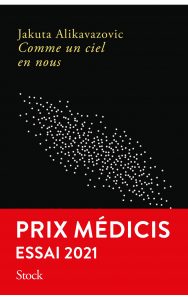
PRIX MÉDICIS ESSAI 2021
Narrative Non-Fiction/Art - September 2021 - 160 pages
Louvre Museum, Paris
Rights sold to Germany (Carl Hanser Verlag), Spain (Muñeca Infinita) and the US (Fern Books).
Jakuta Alikavazovic at the Louvre! Intimately surrounded by classic masterpieces, she reveals her roots.
Imagine a night alone with the greatest treasures in French heritage. The novelist spent this night wandering around the Ancient World sections, with a bag slung across her shoulders containing, amongst other things, an illicit bar of nougat. This personal and original book is peopled with nocturnal shadows and ghosts of the past, and the glide of bare feet past the Venus de Milo.
But Alikavazovic soon explains her intention: “I came here tonight to become my father’s daughter again.” Her father was born in 1951, in a village in Montenegro, which was then part of Yugoslavia. Without a word of French, he came to Paris out of love, to escape, and to see the Louvre. He sees the museum as a city within a city. This exiled father, a scavenger-aesthete, once strolled casually around the Louvre with his daughter Jakuta and asked her, “So, how would you go about stealing the Mona Lisa?”

The author
A novelist and translator of English born in 1979, Jakuta Alikavazovic won the 2008 Prix Goncourt for a first novel for Corps volatils. La Blonde et le Bunker received a special merit in the Prix Wepler. Her most significant translations have been into English with Granta.
Download the material
Find out more
Click hereMuses Never Sleep
Zoé Valdés
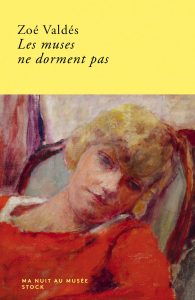
Narrative Non-Fiction/Art - June 2021 - 224 pages
Thyssen-Bornemisza Museum, Madrid
Rights sold to Spain (Thyssen Museum).
The expression “dead painting” is used by French auctioneers for works that can’t be authenticated…
When she visits the galleries of the Thyssen-Bornemisza Museum in Madrid, Zoé Valdés finds herself immersed in a half-fantasy, half-real world. She takes us with her in her pursuit of two muses and two famous painters, Balthus and Bonnard.
The first part of the novel introduces a young model who poses for Balthus, playing cat and mouse with the master who painted “Passage du commerce Saint-André”. Who’s looking at who? Who wants who? Does art produce dreams in a semi-conscious state or scorching reality?
The second part shows us another muse, Renée de Monchaty, the lover idealised by Pierre Bonnard in “Femme à sa toilette” who, broken-hearted, took her own life in 1925.
The muses are young women, sometimes teenagers, innocents sacrificed on the altar of the painters’ desire. In this sensual, sleep-walking narrative tinged with Latin American-style magic realism, truth and illusion intertwine like poisonous flowers.

The author
Born in Havana in May 1959, Zoé Valdés is a novelist, poet and filmmaker, as well as a known figure within the opposition to the Cuban political regime. She found asylum in Paris in 1995 following the publication of her controversial book Le Néant quotidien. Winner of the 1996 Prix Planeta, she has written many books, including La Douleur du dollar.
Download the material
Find out more
Click hereThe Smell of Flowers in the Night
Leïla Slimani
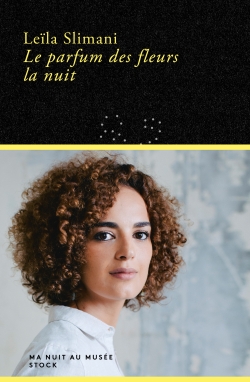
OVER 100,000 COPIES SOLD
Narrative Non-Fiction/Art - January 2021 - 160 pages
Punta Della Dogana Museum, Venice
Rights sold to Brazil (Casa dos Livros), Bulgaria (Lege artis), Germany (Luchterhand/Random House), Italy (La Nave di Teseo), Korea (Mujintree), Portugal (Objetiva), Slovakia (Inaque), Spain (Cabaret Voltaire), Taiwan (Ecus), UK (Hodder), and US (Mobius).
Leïla Slimani, winner of the 2016 prix Goncourt, doesn’t like leaving home and prefers solitude to entertainment. So why agree to spend a sleepless night in the Punta della Dogana Museum in Venice?
Reflecting upon the “impossibility” of a book whilst subtly digressing in the Venetian night, Leila Slimani talks about herself, about imprisonment, intimacy, identity, being caught in the middle, between East and West.
A discreet, sensitive confession in which the author mentions her father who was once imprisoned.
But this book – with its intensity and inner fire – is also about beauty disappearing and how urgently we must make the most of it. It is about the glory of the ephemeral.
At dawn, although awake and alert, the author emerges from the building as if from a dream, and all that is left of her night is the smell of flowers.

The author
Leïla Slimani was born in 1981. She has written three acclaimed novels published by Gallimard, including Lullaby, which won the 2016 Prix Goncourt, was sold to 44 countries and has sold over a million copies in France.
Download the material
Find out more
Click hereEphemeral
Bernard Chambaz

Narrative Non-Fiction/Art - September 2020 - 240 pages
Franco Maria Ricci Museum, Parma
A night in the world’s largest maze surrounded by works of art at the Franco Maria Ricci Museum in Parma.
Franco Maria Ricci founded the prestigious FMR magazine and the Labirinto della Masone in Parma where his art collections are housed. Next to it he grew the bamboo maze which is the largest maze in the world.
Over one night, Bernard Chambaz comes across many individuals whose lives build his narrative. Franco Maria Ricci himself, first young then aging, arousing subtle feelings of tenderness. The writers who gave him texts, such as Borgès, Giono and Zavattini. Donizetti whose skullcap was stolen during his autopsy. Clelia Marchi, a 72-year-old peasant woman who chronicled history in ink on her bridal sheet. The luxury shoemaker Ferragamo who started as a small-time cobbler. And so many others.

The author
The novelist, poet and historian Bernard Chambaz won the 1993 Goncourt Prize for a debut novel for L’Arbre de vies (F. Bourin), and the 2014 prix Jouvenel from the Académie française and the sporting literature Grand prix for Dernières nouvelles du martin-pêcheur (Flammarion).
Download the material
Find out more
Click hereBehind Closed Doors with Picasso
Enki Bilal
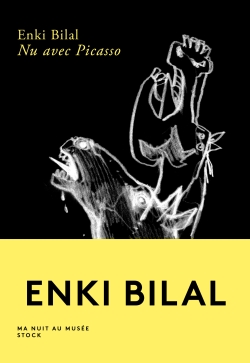
Narrative Non-Fiction/Art - June 2020 - 96 pages, illustrated
Picasso Museum, Paris
A supernatural night at the Picasso Museum for Enki Bilal, one of the greatest and most popular creators of comic books.
What is this strange ultra-powerful hand picking up Enki Bilal in the middle of the night and putting him on a camp bed? And what is this mysterious, haunted place where he ends up?
During his hallucinatory exploration, Enki Bilal meets not only personalities from Picasso’s life, his muses and models, but also the great master himself and his idol Goya. His wanderings through the corridors of the Picasso Museum take the form of a waking dream, allowing us to touch the painter’s work in a captivating, sensual way, culminating in the epiphany of the master’s great work, Guernica.
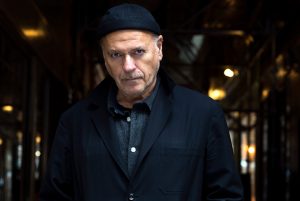
The author
Enki Bilal, to use his pen name, was born in Belgrade on 7th October 1951. In Serbo-Croat and French, his family name is Enes Bilanovic. He creates, writes and illustrates comic books in French. He works partly in the realms of science fiction and tackles themes of time and memory. In 1987 he was awarded the Grand Prix at Angoulême Comics Festival.
Download the material
Find out more
Click hereThere Is Only One Love
Santiago H. Amigorena
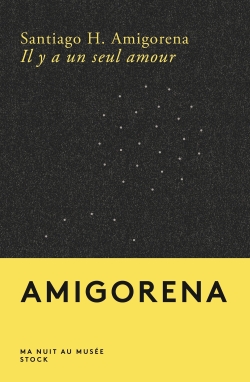
Narrative Non-Fiction/Art - March 2020 - 128 pages
Picasso Museum, Paris
Santiago Amigorena’s love letter to paintings and the woman he loves.
There’s only one love.
Or rather, is there only one love? Do we mean the same love with reference to a painting as to another person? What’s the score with love? Santiago Amigorena wonders.
Deep in a sleeping museum, questions become statements, and statements questions. Clinging resolutely to the thread of love, Amigorena waits through sleep and dreams for the paintings to guide him and give him answers. During this night of enforced solitude – peopled by Picasso, Giacometti or perhaps Vermeer and Bataille – he gently but in great depth explores love, writing, art and the inextricable links between them.

The author
Born in Buenos Aires in 1962, Santiago H. Amigorena is an Argentine writer, director, screenwriter and producer who lives in France. His books are published by P.O.L. His tenth novel, Le Ghetto intérieur, was a renowned success in France and was sold all over the world.
Download the material
Find out more
Click hereA Lesson from the Shadows
Léonor de Récondo
Narrative Non-Fiction/Art - January 2020 - 160 pages
El Greco Museum, Toledo
Rights sold to Korea (Mujintree) and Spain (Minúscula).
A dreamlike night in the private world of the great master of the Spanish School at the El Greco Museum in Toledo.
During a dreamlike night, Léonor de Recondo looks for the most original painter of the Sixteenth Century: Dominikos Theotokopoulos, known as El Greco, in his museum in Toledo.
In this overheated museum which recreates the artist’s home, her heart beats faster. While she waits to meet the artist, she plays the violin, admires his poorly lit paintings emerging from the shadows, and collates snatches of the painter’s little-known life story.
Will El Greco, who died in in 1614, be there to meet her?

The author
Writer and violinist Léonor de Récondo has recorded some fifteen albums and published six novels, including Amours (winner of the Prix des Libraires and the Prix RTL/Lire) and Point cardinal (winner of the Prix du Roman France-Culture/Télérama).
Download the material
Find out more
Click hereSpanish Night
Adel Abdessemed & Christophe Ono-dit-Biot
Narrative Non-Fiction/Art - October 2019 - 224 pages, 23 illustrations
Picasso Museum, Paris
Rights sold to Italy (La Nave di Teseo) and Korea (Mujintree).
Two contemporary artists are on a quest for Picasso’s legendary work, Guernica. A book that celebrates art and friendship.
Adel Abdessemed and Christophe Ono-dit-Biot are invited to the Guernica exhibition at the Picasso Museum for one night. Paradoxically, the centrepiece of the exhibition is absent because it can no longer leave Spanish soil. Armed respectively with chalk and a pen, they set out to find precursors of the Guernica in the other paintings exhibited.
But the missing work soon refers the artist back to his own story in Algeria: he spent his childhood with a charcoal pencil in his hand and hasn’t stopped drawing since, but had to flee to express his indomitable freedom from any form of power, be it political or religious.
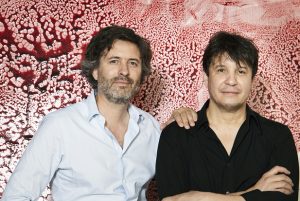
The authors
Born in Algeria, Adel Abdessemed is an artist exhibited worldwide from Moma in New York to the Pompidou Centre in Paris.
Christophe Ono-Dit-Biot is a journalist, deputy editorial director of Le Point and a prize-winning novelist. His books include Birmane (Winner of the Prix Interallié), Plonger (Grand Prix of the Académie Française), and Croire au merveilleux.
Download the material
Find out more
Click hereWalk on till the Evening
Lydie Salvayre
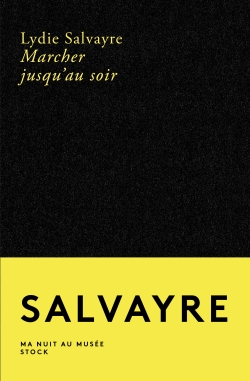
Narrative Non-Fiction/Art - April 2019 - 224 pages
Picasso Museum, Paris
Rights sold to Korea (Mujintree) and Spain (El Desvelo).
With Giacometti’s statue The Walking Man as a starting point, the 2014 Goncourt winner undertakes an emotional re-exploration of her indignation and her family’s story as the daughter of a Spanish exile.
Lydie Salvayre spent a whole night alone at the Picasso Museum during its Picasso-Giacometti exhibition. Having had a lasting passion for The Walking Man (a work that she sees as the very essence of art but had only previously seen photographed in magazines), she was sure to be profoundly moved when confronted with so much beauty. And yet, seeing this “motionless, frozen but also moving body, like a waves at sea that the cold has frozen the swell” produces only mild irritation in her.
Is she illiterate in beauty? Is this sensibility passed on only among the well-to-do to reinforce their exclusivity? Unless the space is cramping the piece and robbing it of its profound message? Between the lines – as the author reveals her relationship with her father, her family of exiled Spanish communists, her obsession with humility and the denunciation anchored within every injustice – the reader gradually discovers her demanding expectations of art and her fear of death. A powerful, full-blooded read.

The author
Lydie Salvayre has written some twenty books, translated into many languages, including Pas pleurer which won the 2014 prix Goncourt (300,000 copies sold).
Download the material
Find out more
Click hereThe Painter Devouring the Female Nude
Kamel Daoud
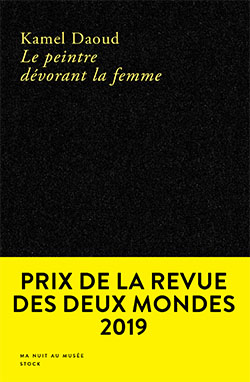
Narrative Non-Ficttion/Art - October 2018 - 220 pages
Picasso Museum, Paris
Rights sold to Germany (Kiwi), Italy (La Nave di Teseo), Korea (Mujintree), Morocco (Virgule Editions, French language), the Netherlands (Ambo/Anthos) and Taiwan (Utopie).
One of the greatest Arabic writers revisits the theme of nudes, desire and women.
Kamel Daoud spent a night alone in the Picasso Museum, a singular experience that inspired him to write this essay in which he juxtaposes the image of a female nude with the painter and a Jihadist. To Picasso, a woman was a body that could be truly captured only in terms of desire and erotic associations. The nude is also like a self-portrait imprinted on his subject’s flesh. In fact, she devours him, like a cannibal. But how does a Jihadist view this painting? In his view, the woman painted by Picasso is a scandalous anticipation of dream woman who awaits him in paradise, when he dies. She therefore incites disobedience and sin.
For the former, she evokes dying of desire. For the latter, killing desire itself or dying in order to satisfy it.
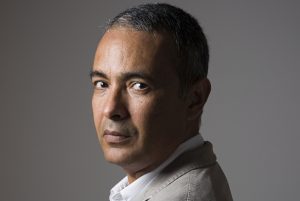
The author
Kamel Daoud was born in Algeria in 1970. He grew up in the village of Mesra near Oran. He is a columnist for Le Point, and Le Quotidien d’Oran, and a contributor to The New York Times and El País. His previous books include the bestseller The Meursault Investigation which has been published in translation across the world.
Download the material
Find out more
Click herePourquoi collectons-nous vos données ?
Les informations que nous collectons nous permettront de vous proposer des contenus personnalisés et adaptés en fonction de votre profil.
Tout savoir sur les données personnelles

